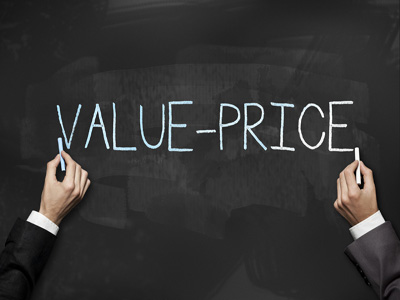Valuing a small business is not guess work. It's not what some other businesses of the same type may have or may not have been sold for, it's not even what a business owner "feels" they want or deserve. It is a formula based on many factors. Peter Siegel, MBA from BizBen & others discuss this topic.

Comments & Feedback From Pro Intermediaries & Pro Advisors On BizBen:


I work with many restaurant sellers, and one of the things that can definitely affect the valuation is the location and hours of the business. A coffee or restaurant business that is Monday thru Friday with short hours and a captive audience, in a nice area, that shows good income, can many times attract a higher price, because it's less of a time commitment and the owner is able to make a good income and still have a life outside of the business.
 Each business has its own individual characteristics, and different industries operate under a different set of valuation criteria. The first thing to consider are the elements of value that you will need to give the strongest consideration to. As an example, my expertise is in the vended laundry industry. We will look most closely at, the mix and equipment condition, the fit to the market and individual machine group performance. Next is the lease. Our industry requires a very long term lease, in order to make the model perform as needed and later sell, without erosion to your initial investment. So we will require Utility Bills, we will perform on site diligence and do detailed analysis of the findings. We will also look at the market area and the surrounding competitors, in doing this analysis. Frequently we will need to take a 2 - 3 week period to count the income and do general store observations of the operating system. We may (usually do) need to renegotiate the lease, which can take weeks, or even longer.
Each business has its own individual characteristics, and different industries operate under a different set of valuation criteria. The first thing to consider are the elements of value that you will need to give the strongest consideration to. As an example, my expertise is in the vended laundry industry. We will look most closely at, the mix and equipment condition, the fit to the market and individual machine group performance. Next is the lease. Our industry requires a very long term lease, in order to make the model perform as needed and later sell, without erosion to your initial investment. So we will require Utility Bills, we will perform on site diligence and do detailed analysis of the findings. We will also look at the market area and the surrounding competitors, in doing this analysis. Frequently we will need to take a 2 - 3 week period to count the income and do general store observations of the operating system. We may (usually do) need to renegotiate the lease, which can take weeks, or even longer.
 The "Fair Market Value" (FMV) assumes that there is a market and what that market is. Usually, the market is an unrelated buyer and anticipates the sale of the entire business at a time chosen by the seller.
The "Fair Market Value" (FMV) assumes that there is a market and what that market is. Usually, the market is an unrelated buyer and anticipates the sale of the entire business at a time chosen by the seller.
 When I am assessing the value of a business, one of the most important steps in analyzing the profit and loss statement and balance sheet of the company. It's a complex process of comparing trends over time, regarding gross revenues, gross and net profits, cash flow, inventories, asset values, etc., etc. In addition, I want to compare all of these to other businesses in the same category. The best tool I have found and use regularly is from Finagraph in Seattle. It's free to business owners (banks have to pay for it) and can be really useful in improving the financial management of a business, in increasing its actual value, and in determining value for a potential buyer.
When I am assessing the value of a business, one of the most important steps in analyzing the profit and loss statement and balance sheet of the company. It's a complex process of comparing trends over time, regarding gross revenues, gross and net profits, cash flow, inventories, asset values, etc., etc. In addition, I want to compare all of these to other businesses in the same category. The best tool I have found and use regularly is from Finagraph in Seattle. It's free to business owners (banks have to pay for it) and can be really useful in improving the financial management of a business, in increasing its actual value, and in determining value for a potential buyer.
 Another factor to consider in a business valuation is the purpose for which the valuation is being assessed. It could be for a potential purchase, for settlement of litigation (e.g., divorce, bankruptcy), for evidence in contested litigation, for purchase-money financing, for re-financing, for dissolution of a business, for merger into a strategic buyer, for retirement or tax purposes. In each of these circumstances, the process can be more or less complex, and the accuracy more or less critical.
Another factor to consider in a business valuation is the purpose for which the valuation is being assessed. It could be for a potential purchase, for settlement of litigation (e.g., divorce, bankruptcy), for evidence in contested litigation, for purchase-money financing, for re-financing, for dissolution of a business, for merger into a strategic buyer, for retirement or tax purposes. In each of these circumstances, the process can be more or less complex, and the accuracy more or less critical.

 An observation regarding Dave MacMillan's analogy --
An observation regarding Dave MacMillan's analogy --